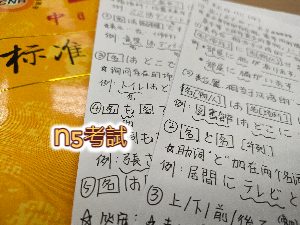Most Japanese universities and official language tests-how much do you know about jlpt?
- by oooii
- August 5, 2021
Many students may have a problem when they are just preparing to study in Japan. Which language should I test for studying in Japan? What are the test scores and requirements? How to prepare for the exam? What precautions? Today I brought an ultra-detailed analysis of the Japanese Language Proficiency Test to help everyone better understand the Japanese Language Proficiency Test.
How much do you know about JLPT, the most recognized language test in Japanese universities and official institutions?
First of all, you have to know that the most authoritative language test for studying in Japan is the "Japanese Language Proficiency Test", which is often referred to as the JLPT test. It is sponsored by the Japan International Exchange Foundation and is aimed at Japanese learners whose native language is not Japanese. It is said to be the most authoritative because it is the official language test score generally recognized by Japanese universities. Whether you want to apply for a Japanese language school, graduate student, undergraduate student, master or doctoral degree, JLPT is recognized.
There are only two such authoritative exams a year, in July and December. The examination time is the first Sunday of each month, and the registration time is about 4 months in advance. Due to the small number of exams, there are relatively few test sites. The name of each year's exam registration is a "hard battle". In order to successfully register, many students will stay in front of the computer early, even go to Internet cafes or contact "scalpers" directly. Click to participate as soon as the exam is open. Even so, it is possible that the test site may not be grabbed, and it will take half a year to miss it.
How much do you know about JLPT, the most recognized language test in Japanese universities and official institutions?
The Jlpt test is divided into 5 levels n1-N5考試, where n1 is the highest and n5 is the lowest.
In terms of subject and score setting, the N1 and N2 exams are divided into two subjects: "Language Knowledge" and "Listening". The language knowledge is divided into four small parts: writing, vocabulary, grammar and reading. N3, N4, and N5 are divided into "language knowledge (words and vocabulary)"; "language knowledge (grammar)", "reading", and "listening" are all 180 points.
More importantly, all exams are multiple choice questions and there are no subjective questions. Do you want to laugh? Now I want to tell you the bad news. Different clearance tests and a single score are necessary.
N1 pass line is 100 points, language knowledge, reading comprehension and listening must be 19 points or more (including 19 points), N2 pass line is 90 points, and N3 pass line is 95 points, of which individual items must be 19 points or more (including 19 points) ) To pass. The N4 pass line is 90 points, the N5 pass line is 80 points, the sum of language knowledge and reading comprehension reaches 38 points, and the listening score reaches 19 points or more to pass.
So in the exam, it is easy to come up with a situation, your total score has reached the passing score, but because a single item does not pass the qualification certificate can not be obtained, so I want to remind you here that each part should be balanced development , Don’t have a "partial score" situation.
Jlpt is not only a mental work, but also a physical work. n1 language knowledge and reading test time is 110 minutes, listening 60 minutes; n2 language knowledge and reading test time is 105 minutes, listening 50 minutes; n3 vocabulary is 30 minutes, grammar 70 minutes of reading, 40 minutes of listening; 25 minutes of vocabulary reading, 55 minutes of grammar reading, 35 minutes of listening; 20 minutes of vocabulary reading, 40 minutes of grammar reading, and 30 minutes of listening.
It seems that the exam time is very long, but the amount of questions is huge. Many students report that the time is tight after the exam, so you must calculate the time before the exam to avoid the situation where the question is not completed.
How much do you know about JLPT, the most recognized language test in Japanese universities and official institutions?
Knowing so much about JLPT, what level should I test? When is it better to prepare to learn Japanese?
If you are a science, medicine, or art student, you can prepare for the n2 exam. Students with zero foundation can get n2 by studying in Bel Air within 6 months to 1 year.
If you are a liberal arts and business major, then your goal must be positioned on the N1 exam. And the higher the score, the better. It takes about one and a half to two and a half years to get from zero base to N1.
So if you are a sophomore or junior student and have not started learning Japanese yet, get ready!
After going through all this, do you have a better understanding of the Japanese Language Proficiency Test?
Related articles recommended
Confused and anxious? Two certificates worth getting! High gold content! test
What level of Japanese does n5 ~ n1 represent?
Japanese proficiency test n1 ~ n5, which level should I test the most appropriate?
